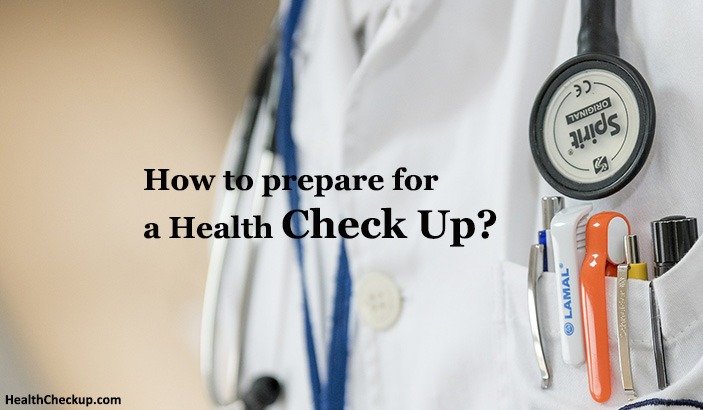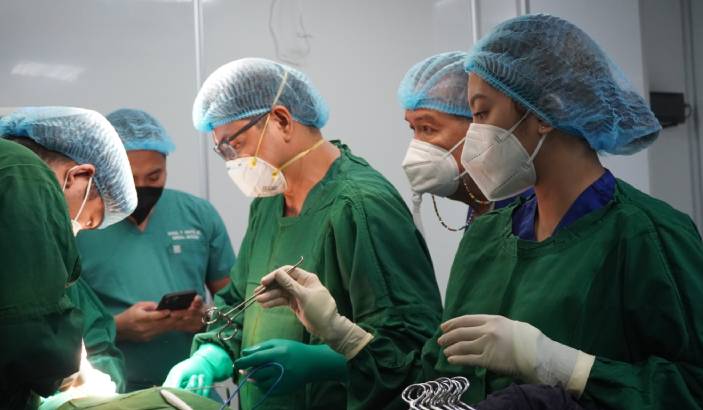Having regular Medical health check up is extremely necessary for staying healthy and serve as a forerunner of impending disasters in the form of diseases and ailments.
Why Do You Need a Medical Health Check Up?
Regular health check up and tests can help find problems before they start or in the very early stages. When you discover the problems in the early stages, your chances for treatment are excellent. So make it a point to ensure your continued good health by opting for regular medical checkups, which is the right step towards living a longer, happier, and healthier life. Health check ups gives you an in-depth insight into your current state of health and offers you the chance and motivation to make suitable changes to your lifestyle to enjoy a healthy life. Through this article we would like to emphasize the importance of a health check, how to prepare for it, and the precautions to be taken.
What Will a Medical Health Check Up Do for You?
A health check is a complete and comprehensive screening program that is made to suit the needs of the individual. It involves a detailed physical examination of all the important organs in the body through various tests – the important one being blood test, X-ray, CT scan, MRI, ultrasound, endoscopy, and colonoscopy. Of course, the individual will not be undertaking all the tests, but only need-based tests. The results of these tests will determine your state of health and also if you require any treatment.
When Do You Need a Medical Health Check Up?
If you are in good health, you can schedule a health check up once in two years, but if not, you should go in for a health check every year. These annual health check ups and exams depend on one’s age, health, lifestyle choices, family history, and other factors. But, it is mandatory for you to go in for a health check up immediately if you notice or experience any of the following symptoms:
- If you see some changes like lumps or changes in the skin
- If you experience frequent pains, dizziness, or fatigue
- If you observe changes in your urine or stool
- If you have menstrual cycle changes
- If you notice any changes in your eating habits such as feeling more hungry or not feeling hungry
- If you frequently experience depression, anxiety, trauma, distress, or sleeping problems
- If you have a persisting fever not responding to regular treatment with anti fever medicines.
- If you have unexplained loss of weight over 2 months.
What are the Common Investigations in a Regular Health Check Up?
A regular health check-up normally comprises of the following investigations:
1. A regular health check up, first and foremost, consists of a complete physical examination, which includes body height, weight, blood pressure, and pulse rate
2. Laboratory investigations include:
- Complete Haemogram: This examination tests for the different components of blood and determines such disorders as anemia, infection, and other diseases
- Lipid Profile: This is used to assess the risk of developing cardiovascular diseases
- Liver Function Test: This test assesses the functioning of the liver or diagnoses liver diseases
- Kidney Function Test: Used to evaluate the functioning of the kidneys
- Blood Sugar: This test measures the blood glucose for checking pre-diabetes and diabetes
- Chest X-ray: The x-ray measures the chest and the organs located in the chest
- ECG/Treadmill Test: This Treadmill Test is a diagnostic tool to measure the rate and regularity of heartbeats and for assesses cardiac stress
- Ultrasonography of the abdomen: Diagnostic imaging technique used for visualizing organs and structures in the abdomen, including the liver, gall bladder, spleen, pancreas and the kidneys
- Routine Urine Examination: This test is used for general evaluation of health, metabolic or systematic diseases.
Medical Health Check up Preparation
Do remember to do these things before you go for your medical checkup:
1. Review your family health history – Take a look at your family history and make a note of any new ailments or diseases that you have been down with since your last health checkup and inform your doctor. Tell your doctor of any heart disease, stroke, diabetes, or cancer that any of your family members have been affected by.
2. Vaccinations: Tell your doctor if you are due for any vaccinations.
3. Make a list of the things that you would like to discuss with your doctor.
4. Make a list of those changes that you have noticed or felt such as
- Dizziness
- Depression
- Insomnia
- Menstrual changes
- Change in eating habits
- Changes in your stools and urine
- Bodily changes
Precautions to be Taken Before a Medical Health Check up:
- Get at least 6 hours of sleep prior to the health check-up. Lack of sleep may give rise to abnormal results.
- Do not eat or drink at least at least 8 hours prior to the check-up. You can drink water, unless specifically instructed.
- Do not drink alcohol for at least 24 hours prior to the health check as alcohol may affect some
- Ladies should avoid urine analysis 7 days before or after the menstrual period. Traces of blood in the urine will contaminate the sample and affect the results.
- Ladies should also avoid having a breast mammogram during menses as the breast is tense at during that period.
- Pregnant women are advised not to undergo any X-ray test.
It should be remembered that every individual should undergo regular health checkups after the age of 25. Today, we find that diseases and ailments are catching with people at an earlier age because of a stressful lifestyle. Normally, the frequency at which these health checkups should be done is normally a year, but in some cases, it can be lesser than a year. These health checks help you decide on the type of lifestyle you should adopt and the type of diet you should eat.
Now, that you have fully understood the importance of health checkups, we are sure that you will not only make health checks an important aspect of your life, but pass on this message to all your friends and colleagues.
Medically Reviewed and Updated By








